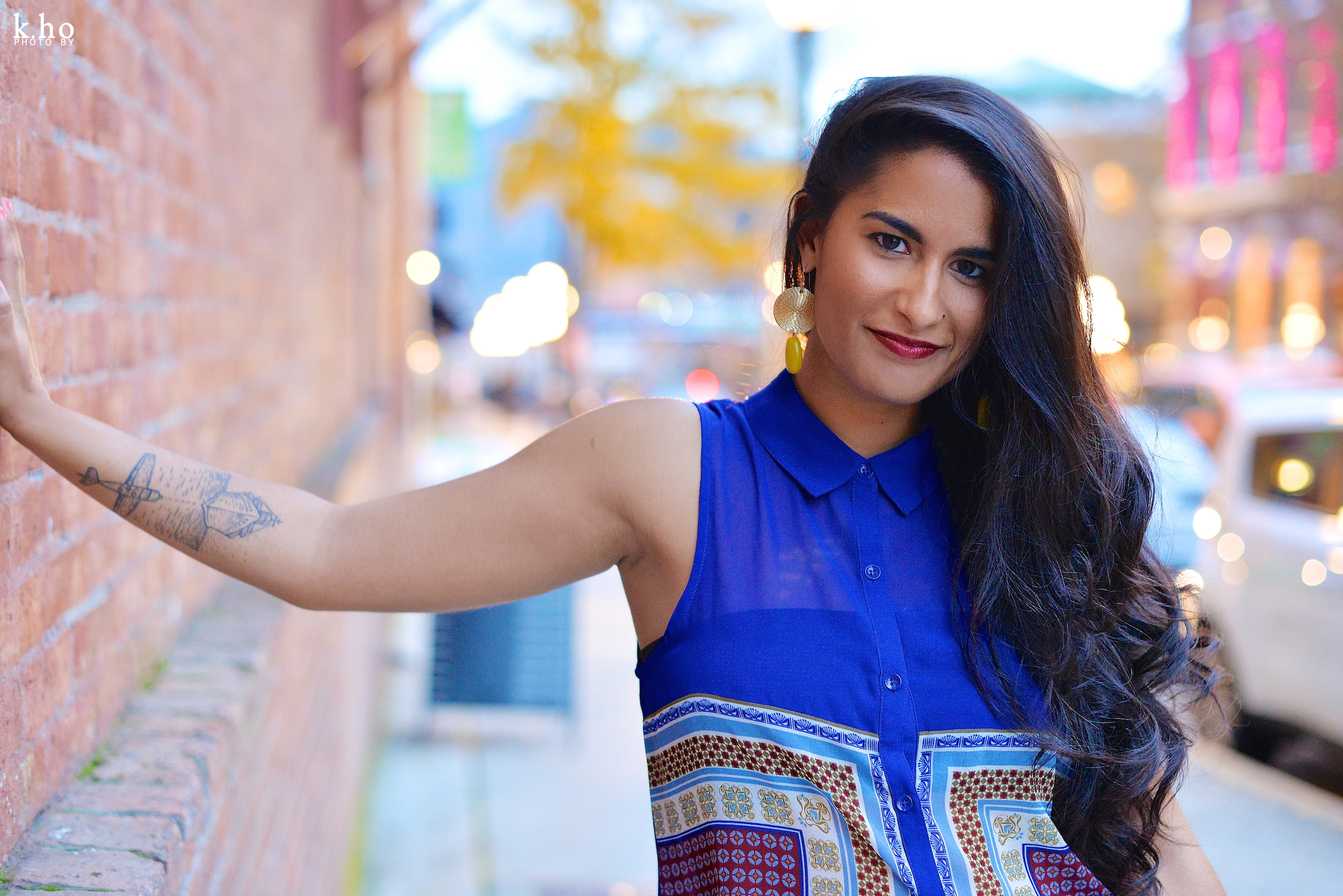
As the Artistic Director of the Vancouver Queer Film Festival (VQFF), Anoushka Ratnarajah never imagined being faced with a task like this. Now in it’s 32nd year, the Festival has had to reinvent itself in the face of a pandemic that has thrown, not only the festival circuit, but all our lives, off kilter. In a few weeks, from August 13th to the 23rd, the Festival will continue to highlight, as it has always done, the excellence of queer filmmaking communities from across the world and at home. The only difference this year being that it will fully be online.
It is through the persistent work of organizations such as VQFF that we’re witnessing a surge of queer films and narratives in the mainstream media, which in itself, is a colossal shift from their consistent relegation to the fringes in prior decades. With Covid exposing inequality in our societies, especially for Black queer and trans communities, the Festival’s presence this summer has become more instrumental than ever.
Anoushka has been the driving force behind the Festival’s programming. She talked to us about what’s in store for audiences this year as well as her own personal journey in the world of art and film as a queer, mixed race femme of Sri Lankan and British ancestry growing up in Ladner, British Columbia.
Anoushka, can you tell us a bit about yourself and your career? You’ve had a very cool education- a BFA in Creative Writing at UBC and a Masters in Arts Politics at NYU. You’ve also spent time in the United Kingdom. You conduct anti-oppression workshops and you’ve written plays.
I am an interdisciplinary artist. Before VQFF, I worked in independent theatre as a writer performer, director and stage manager. I had to wear multiple hats there, which prepared me for my current role. Since 2017 I have been focusing on my work as the curator for the VQFF. It’s deepened my love for film and affirmed for me that representation is vital to our health, and to social justice and equity.
What has the experience of being the Artistic Director of the VQFF been like so far?
It’s been amazing and it’s been really hard. I’m so lucky to have this job. Right now especially. I’m heartened to be working for an organization where queer artists can thrive in their work environment. In my childhood and youth, I never saw a woman of colour in any position of authority. That changed when I went to New York to do my Masters and had many incredible mentors and teachers who were rad women and women of colour and queer folks. That showed me that it is possible to excel in your career as a person of colour.
Growing up in the 90s, any characters of colour or any queer characters were sidekicks, best friends, comedic relief or villains. When that’s all you see, it can inhibit your imagination on how far you can go in life, especially in the arts.
I’m in my fourth year at VQFF now and it’s been a journey of learning. There are only three queer mandated arts organizations of our size. There’s us, there’s the Queer Arts Festival and there’s the Frank Theatre. For someone like myself to be in this position is a huge responsibility and an honour. I hope people can see from the programming that I’m taking it very seriously. My goal is always to be a source of support and a cheerleader for marginalized artists, particularly artists of colour.
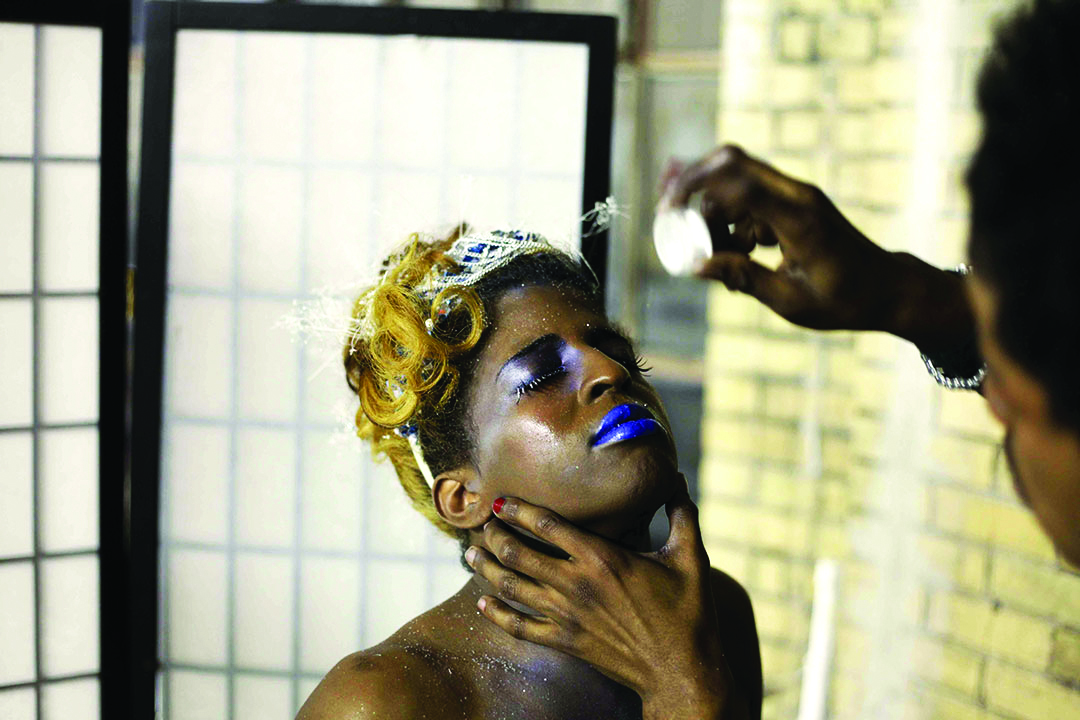
Arts spaces are not always friendly to us. We have to work twice, three times as hard as everyone else to prove that we belong here. I’ve been in plenty of meetings in my career where even though I was the person with the most information, people would look through me. We’ve all internalized that people in positions of power are straight white men. When you are a marginalized person who is in a position of power, you have to work extra hard to be recognized and to be truly seen for the work that you do.
You’re allowed to exist in those spaces as long as you don’t rock the boat too much. So it’s like well, I’m here but can I really use my voice to make changes?
Every risk that you take has to be carefully thought out. Unexpected things will happen. You also have the expectations of your own communities and your own expectations of yourself. It’s a responsibility and a privilege. And it’s not easy.
Diversity and inclusion are on everyone’s minds these days with the Black Lives Matter movement at the forefront. VQFF has been doing this work for years, how does it feel to be producing this year’s Festival amidst this climate in particular?
VQFF is a festival with a long history. Queer communities are very politically active. They are intelligent, thoughtful, vocal, and always at the forefront of social change. Being a programmer for VQFF is not the same as being a programmer for say, the Vancouver International Film Festival. Upholding our values is a part of our job at VQFF whereas other organizations don’t have to think about that as much. Organizations are being asked to think about diversity and inclusion because conversations around race, gender, class, sexuality and equity are so much more part of the mainstream than they were five or six years ago. Queer arts organizations have had to do that from the beginning.
It’s always been a part of our work.
As the Festival is going online this year, how has it changed the way you organize and curate work?
Covid threw everybody in for a loop, obviously. I’m grateful and glad that we’re still getting to do the Festival. We work in an artistic medium that can be easily translated to a digital format.
One of the things that excites me most about going digital is that the Festival can now reach communities beyond Metro Vancouver. We can now reach queer and trans folks living in rural areas where it’s not the safest to have Pride events. Parents and youth in small towns will get to see queer lives on screen.
The film industry has been having a really hard time with Covid, in general. It threw the festival circuit completely out of whack. A lot of traditional elements of film festivals no longer make sense. For example, premiere status for films. What do they mean in a digital environment?
Holding space is also a big challenge during Covid. A big part of my job is creating physical space for audiences. When everyone is physically present at venues you can feel their energy and see their expressions. You can talk to people before and after films. You get a collective experience that can’t quite be replicated in a digital environment. We’ve tried to recreate that with Q&As, panels, and workshops over Zoom.
I get a lot out of being in the VQFF spaces physically. The act of seeing each other not only on screen, but in real life, is very important for queer people.
The theme this year is “Still Here”. What are some of the films you’re excited about this year?
I might be a witch because I came up with the theme before Covid happened! It was because so many of the film submissions we were receiving were about resiliency that it just made sense.
Our opening gala film “Pier Kids” played at Doxa. It’s an uncut guerrilla style documentary that showcases black queer resourcefulness and resilience. It follows queer and trans youth of colour who find community, friendship and family on Christopher Street piers in New York City. It is filmed by a black queer filmmaker Elegance Bratton who was homeless himself for a time. It’s shot through an experiential lens, which is rare in documentary filmmaking. Documentaries are usually shot from a colonial exploratory perspective with an idea of objective filmmaking.
Elegance took a revolutionary approach to filmmaking. He filmed over five years, working hard to build trust with people seen in the documentary and he also paid them. Documentary film subjects never get paid. They usually sign a release, which gives filmmakers the right to document the subjects’ lives as they see fit. “Pier Kids” is a very timely film given the violence occurring against Black bodies, in particular against Black trans women, who are disproportionately targeted. There will also be a pre-recorded Q&A with Elegance and his producer Chester Algernal Gordon.
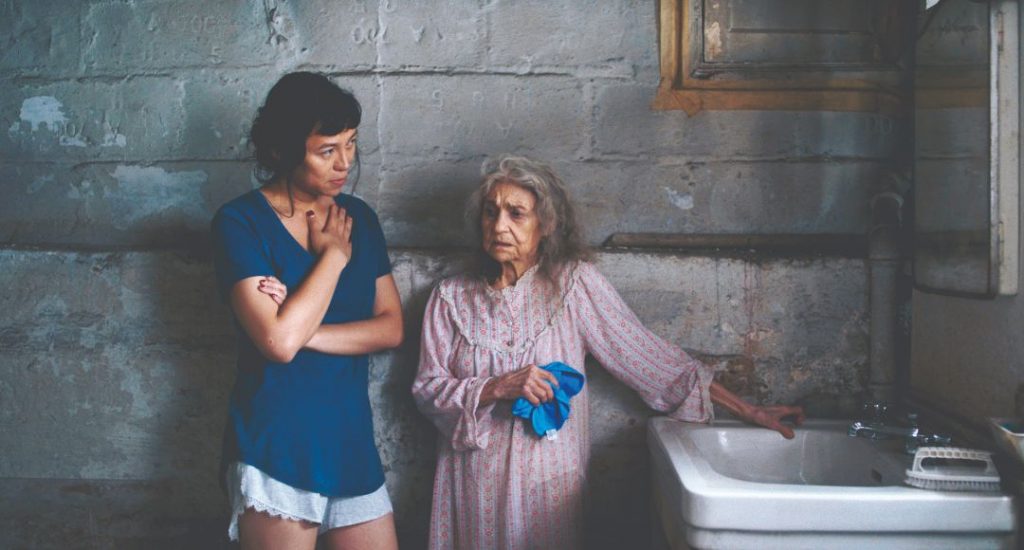
Our centrepiece gala feature is a film called “Lingua Franca.” This is another first in that it is directed by, stars and is written by a Filipina trans woman of colour, Isabel Sandoval. Isabel stars as Olivia, an undocumented trans woman living in Brighton Beach who works as a domestic caregiver for an older Russian Jewish woman. The film highlights the struggles, challenges and fears of being undocumented in the United States, especially when you’re a trans person. We’re doing a Q&A with Isabel as well.
We have amazing local programming this year. There is the annual “The Coast is Queer” shorts program, which celebrates local queer filmmakers. We will also be screening a queer punk retrospective called “Punk as Flick.” It is curated by Kim Kinakin and Michael V. Smith. It presents a lot of archival footage from the queer punk scene in Vancouver in the 90s. It is a celebration of a space that doesn’t exist anymore. I think it’s an important tie-in with our “Still Here” theme. Queer spaces are disappearing very quickly in Vancouver, which is a very unaffordable city. Queer artists don’t usually fall into the highest of economic brackets. It’s important for us to have our own spaces and access to venues. These punks in the retrospective created their own spaces in a very DIY way. The film is an intergenerational conversation about how queer communities are still carving out spaces in a city that is very inaccessible to queer communities.
Can you tell me a bit about the Black and trans programming this year? How do you set out to achieve diversity within the queer film genre? As a lot of queer spaces are still dominated by white folks especially white men.
I work in an industry that is very male-dominated and very white supremacist. That has been true for hundreds of years. Filmmakers of colour, trans and queer filmmakers have that history going against them. They face a lot of discrimination and lack of opportunity, which means there are fewer films made about us by us.
Luckily that pendulum is swinging in a different direction now. There are so many folks of colour, queer and trans folks who feel that they can go to film school or that they can just make a film period. Increased representation has encouraged and motivated queer filmmakers and people of colour.
Vancouver is a very white city. We live in a white supremacist environment. I’m not going to pretend that’s not real. It affects me every single day of my life. But I don’t believe it has to be that way. Doing anti-racist work is not easy but it’s worth it. I think about my younger self and what she would’ve wanted to see, and extend that to others. Who doesn’t get to see themselves on screen? Are there films that I can find that do that? There’s so much work to be done.
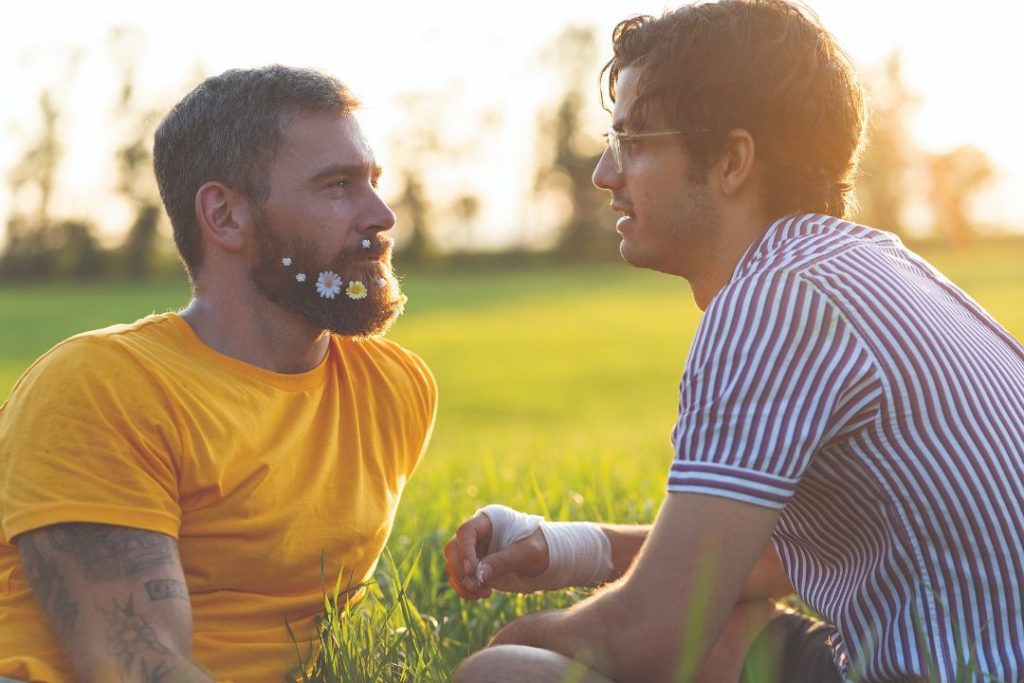
When our facilitators talk at schools they talk about why it’s important to see ourselves on screen but also why it’s important to see people who are different from us. I program with that in mind. I ask how we can provide an educational opportunity for folks with privilege to connect with the human emotions of people who look different from them.
Are you worried that Covid will further marginalize queer communities? How can we support them best?
The mental health impacts of Covid on us as a human species, but specifically on queer and trans people, are going to be enormous. Having to isolate when you’re already in an isolated community will have a huge mental health impact. The fact that we won’t be able to gather and celebrate each other will have a huge mental health impact on queer and trans people all over the world.
We already struggle with mental health issues as we live in a homophobic and transphobic society. I think close to 40% of homeless youth are queer or trans kids who’ve been expelled from their homes. Mental health is linked to our physical health. There will be increased access needs and we’ll have to keep that in mind for the Festival next year. There will be ripple effects that we may not understand for years to come.
The economic impact on queer folks will be huge as well. A lot of queer folks across industries have lost their jobs and access to support systems. The impacts of Covid on the arts will also be huge. Many artists have lost their livelihoods. Art has been a source of comfort, catharsis and joy during this time but we’re going to have a deficit of it this time next year, especially in the film industry where many productions have been halted.
A lot of our content comes from different parts of the world that have been hit at different times by Covid. The majority of our culture content comes from the United States and they are a mess. I’m already wondering how Covid is going to impact the number of films submitted to VQFF next year. I hope that the support the arts are getting in British Columbia can continue beyond this year because organizations will need it.
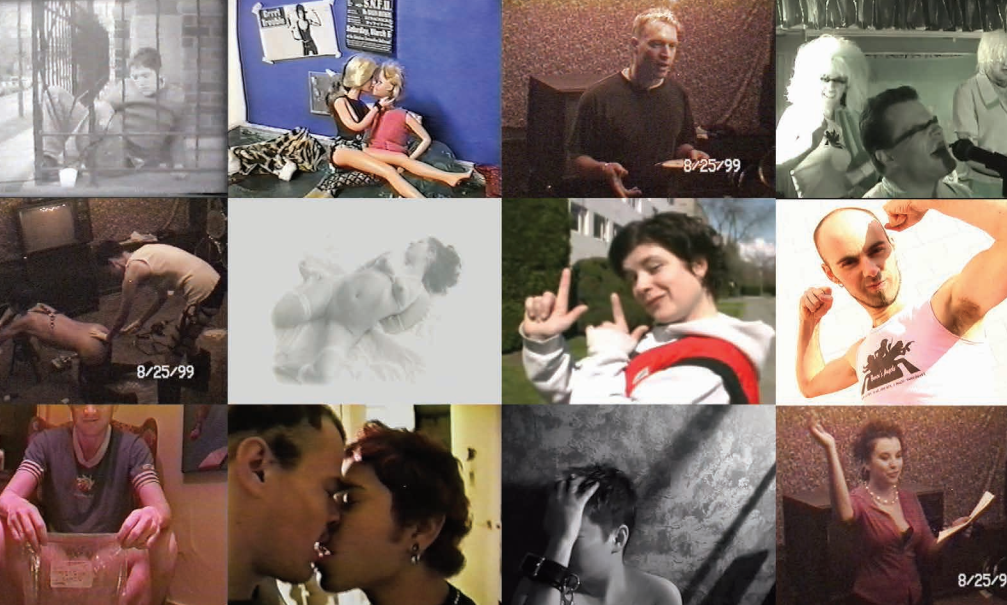
There is a lot of stress coming from not being able to plan for the future.
Yes and we live in a capitalist culture where planning for the future and exponential growth is championed and applauded. Covid has presented an opportunity for us as arts organizations, and as people, to think about what slowing down and deepening our work means rather than a fast paced commitment to growth. We can think about growth and development differently – deepening rather than growing wider or upwards.
Covid has also exposed structural and systemic inequalities in our society.
It’s shown us that we are capable of change. It’s shown us we can change how we move our bodies and how we hold our bodies in public space. In Phase 1 I used to go for many walks and once a cis man didn’t move for me on the sidewalk. I was shocked. Pre-Covid I wouldn’t have been. Now we’re asking why cis men can’t change the way they carry themselves in the world. There were so many things that we had to pivot on a dime for because of Covid. There’s no reason why things can’t change.
Finally, was it difficult to find a space in the B.C. arts community as a queer person of colour? What advice would you give to young queer and trans artists and filmmakers, especially of colour?
Everyone has different experiences so my advice will come from my own specific experience. I have been very privileged and afforded a lot of opportunities because I had upwardly mobile parents, which meant that I could get a Masters degree. Which unfortunately still means a lot in the arts community and in general. I’m a person of colour that comes from what white supremacy perceives as a model minority community. Many of the doors that were opened for me would be closed if I didn’t have these things. Because of these privileges I can code switch in particular ways, I can speak the language of the powerful to the powerful.
There have also been major struggles. I’m young to hold a position like this. I feel the pressure to be perfect and to do everything right. Luckily I have amazing colleagues and friends who also work in the industry. I would say for any young person looking to go into the arts: find your people. Find the people you can work with and the people you can collaborate with, people who understand you and support you and challenge you to grow.
It’s going to be hard. You won’t be taken seriously a lot of the time. You’re going to have to have a lot of difficult conversations with people who have a lot of privilege. You have to hold your ground, advocate for what you believe in. Sometimes you’ll have to compromise in ways that don’t always feel good. But understand that the compromise won’t last forever because things change in the world. There are many many tactics for taking down systems of oppression in the world. Relationships and being relational have been the most important tools for me in this industry. They’ve changed my life, they’ve advocated for me, they’ve had my back.
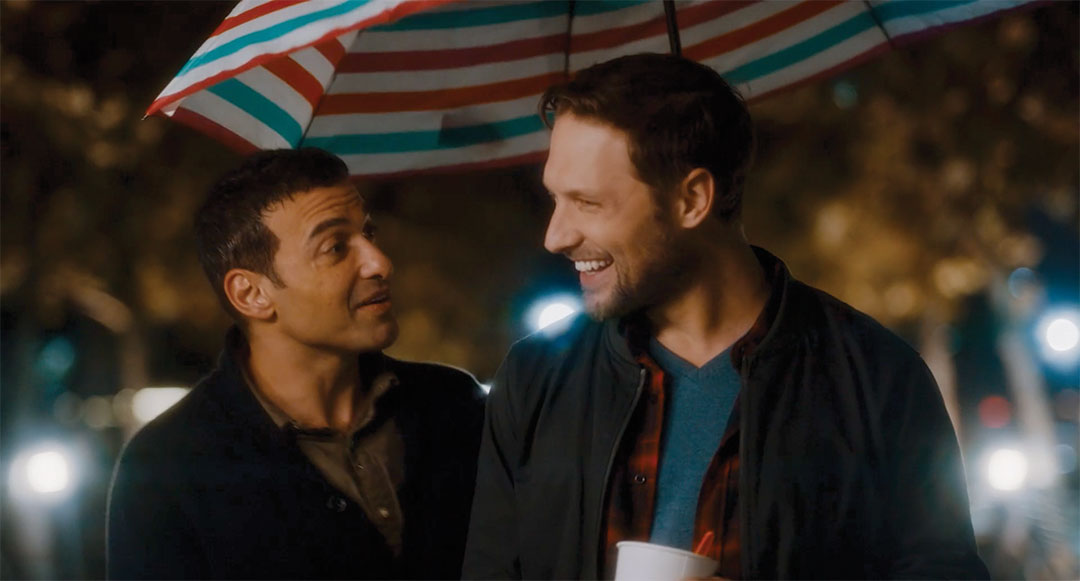
I’d also say to young queer and trans artists, if the story is important to you, you deserve to make it. Don’t let somebody else dictate what your work should look like. Follow your vision to the end. For artists, our job is so connected to who we are at our core. When that gets compromised it’s not like we can just leave it behind at the office. When you’re advocating for your work you’re also advocating for yourself.
There will be a lot of times when you’ll feel frustrated, helpless or exhausted. But as long as the work fulfils you, you’re probably doing the right thing even if everything is really hard. Just because you get a title doesn’t mean people will respect you. That’s true for the community you represent as well. If you’re marginalized and you’re in a position of power people will look to you to solve problems that may have existed before you. That can be a lot of pressure. You can’t do that work by yourself you need the buy-in of everyone you’re working with. Sometimes that buy-in takes a really long time.
Don’t give up. You’re here for the right reasons. This work takes a long time. You might get to see the world you envisioned before you die but you will get to plant the seeds that make that world possible.
For more information visit VQFF here.
– Prachi Kamble
